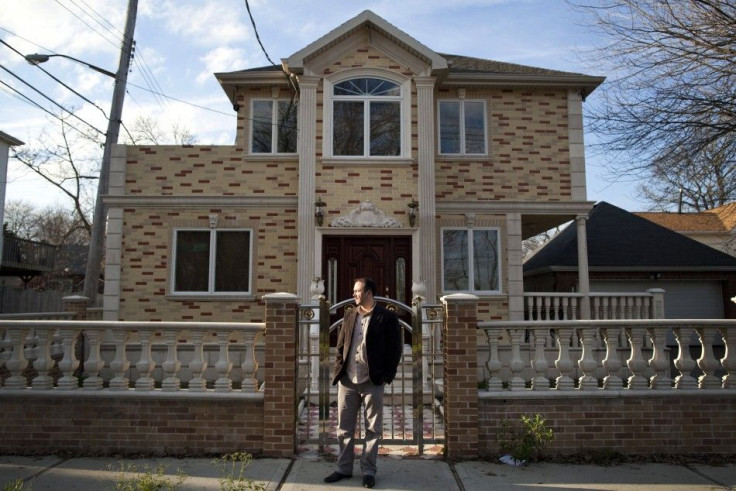U.S. Home Prices Seen Flat in 2012, S-l-o-w-l-y Rising in 2013: Poll

The five-year slide in U.S. home prices will stop this year, followed by the start of a weak recovery next year, according to a Reuters poll that also showed economists split on whether the government would make new efforts to support the market.
A poll of 23 economists and analysts found a consensus for no change in the S&P/Case-Shiller home-price index in 2012, compared with a median 0.3 percent decline that was forecast in the last poll in November.
Many say that a recovery in the housing market is a key requirement for any vigorous rebound in the world's largest economy. The spectacular collapse in U.S. housing -- leading to average prices plummeting by one-third -- was the trigger for the 2007-2009 financial crisis and related recession.
Transcripts released on Thursday of Federal Reserve policy meetings in 2006, the year before the crash, showed its officials thought the market was stabilizing, even as late as December that year. Private-sector economists did no better.
The meager 1.5 percent gain expected in 2013 will offer little comfort to the millions of Americans trapped in negative equity -- owing more to their mortgage lenders, and in some cases much more, than their houses are worth.
I think we are seeing stabilization, but unfortunately it's stability at the bottom, said Lindsey Piegza, economist at FTN Financial, describing the grinding halt to several years of relentless price declines.
The average price of a U.S. home is currently around where it was nine years ago, and the most recent data from October showed price declines still accelerating.
The market remains under pressure from an excess of homes available for sale. Fifteen of 20 respondents said monthly foreclosures should subside this year, while five didn't see any let-up until next year.
Gains in home sales and new-home construction in November and recent improvement in homebuilder sentiment added only a touch of optimism at the end of last year.
Even so, while the gain expected during the next two years is tiny compared with the more than 30 percent plunge from the peak in 2006, it is still a more cheery outlook than in some other parts of the world.
A recent Reuters poll predicted British home prices, which have not dropped anywhere near as far as they have in the United States, will slip 1.7 percent this year. In China, they are expected to fall 10 to 20 percent.
Government Push?
U.S. economic data have been encouragingly upbeat over the past few weeks, certainly compared with Europe.
But the recovery remains fragile, and it will be hard-pressed to make stronger gains without greater improvement from the housing market, making it a key issue in an election year.
The Federal Reserve last week outlined a number of steps that could be taken to help the market, but the political gridlock that characterized 2011 is expected to persist in the run-up to this November's elections and could get in the way.
Those polled were evenly split on whether the Obama administration would undertake a new plan to support housing using government-run mortgage-finance firms Fannie Mae and Freddie Mac this year, with 14 saying yes and 14 saying no.
In a paper sent to lawmakers last week, the Fed said Fannie and Freddie could play a bigger role in stabilizing the market. Its array of suggestions included allowing the agencies to provide cheaper mortgages to a broader swath of homeowners, as well as expanding the government's main refinancing program.
I think what we're likely to see is further eligibility for refinancing on the government balance sheets, so essentially more and more homeowners being able to take advantage of refinancing programs [and] loan modifications, said FTN Financial's Piegza.
The Fed also said a plan to turn foreclosed homes into rentals should be considered.
If well-designed, the [real estate owned]-to-rentals plan could shift a number of vacant properties to the rental market, alleviating some of the downward pressure on home prices and upward pressure on rents, said Yelena Shulyatyeva, economist at BNP Paribas.
With interest rates already near zero and likely to stay there for years, the majority of economists did not think another round of purchases of mortgage-backed securities by the Fed would materially improve the market.
Eighteen economists said MBS purchases would not materially help housing, while 11 said it would.
Fed purchases of MBS would lower rates marginally, but the problem isn't high rates, it is overly stringent lending standards, said David Crowe, chief economist at the National Association of Home Builders.
The average 30-year mortgage rate for the year was seen at 4.15 percent.
Rates have dropped steadily since the collapse of the housing market and as the Fed has kept interest rates near ultralow levels. In 2006, the peak of the market, the annual average fixed rate on 30-year conforming loans was 6.41 percent, according to data from Freddie Mac.
(Polling by Namrata Anchan and Deepti Govind in Bangalore; Editing by Ross Finley and Patrick Graham)
© Copyright Thomson Reuters 2024. All rights reserved.






















